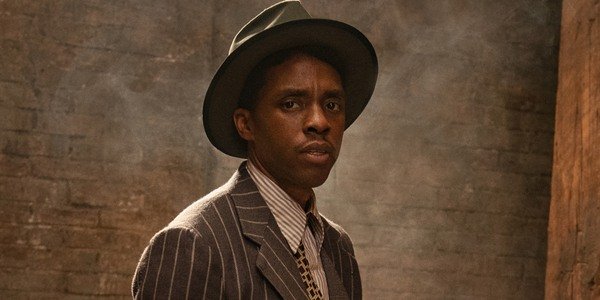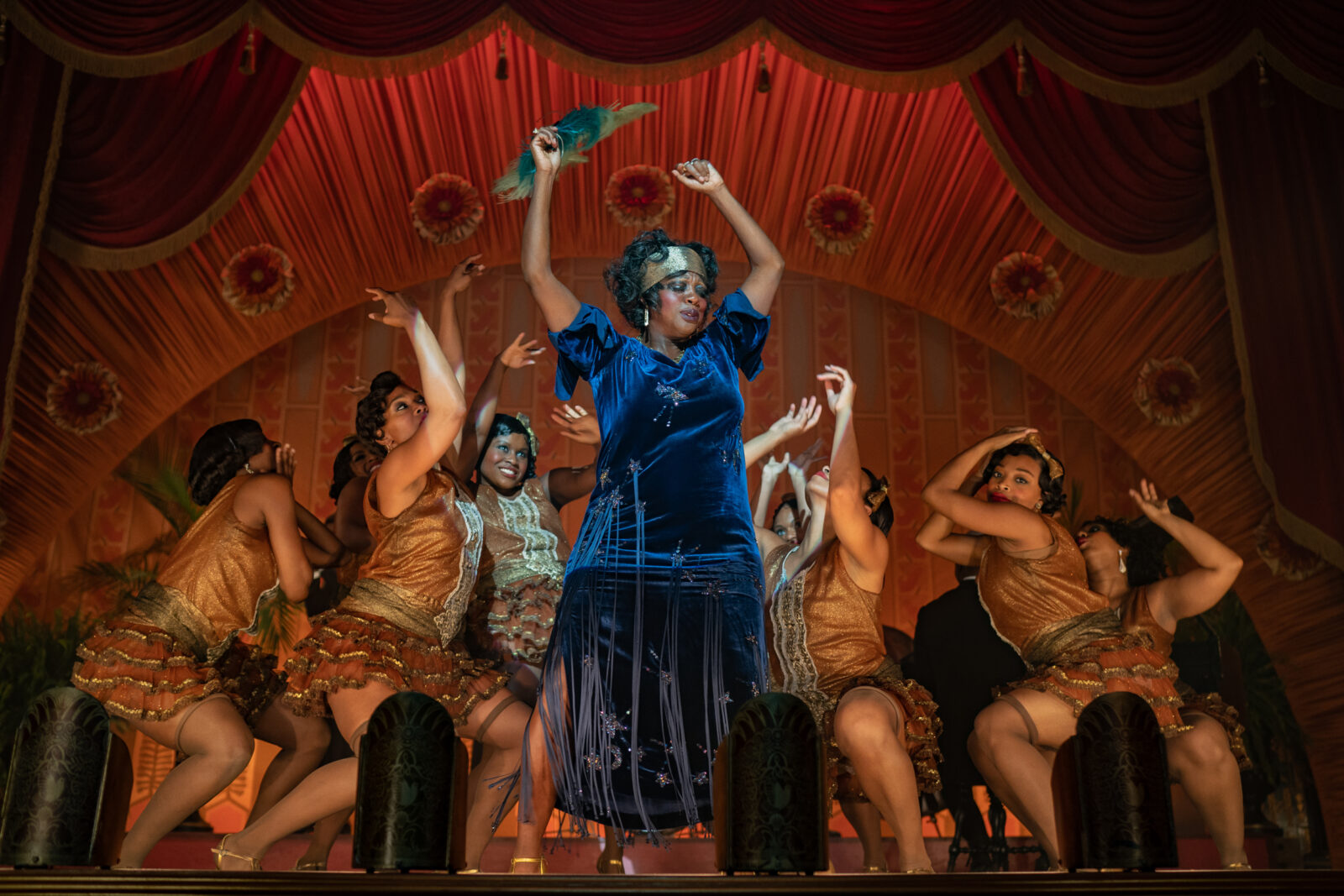Produced by Denzel Washington, this film adaptation of August Wilson’s Ma Rainey’s Black Bottom has garnered significant hype. Not just because of the source material, nor because it shines a light on the mother of blues Ma Rainey. Rather, its biggest claim to fame is it is the final performance of one Chadwick Boseman. Leaving us this past August at the tragically young age of 44, this was an accidental swan song for an acting legend.
Naturally, this led to some concern over whether or not this will work as a strong last goodbye. And thankfully, he doesn’t disappoint. But there is so much more to Ma Rainey here that makes this a powerhouse. The direction, the story, and especially the actors make this an engaging, fast-paced, and fantastic adaptation of the famed play. George C. Wolfe uses his theater experience and creates a unique film that celebrates the original source’s stage roots while maintaining cinematic value .
Theater and Film Combined
George C. Wolfe maintains much of the original play’s theatrical roots. There are very few locations, and much of the film is carried by dialogue, whether it be conversations or monologues. Some may criticize it as the film feeling uncinematic. But rather, Wolfe takes the elements of theater and film to combine it into one engaging piece. The photography from Tobias Schliessler is full of distinct and creative lighting. The production design by Mark Ricker is highly detailed, with sets that are both inviting and memorable. Ann Roth’s costumes are memorable and lively.
Yet through it all, it’s the screenplay that makes the film shine. Writer Ruben Santiago-Hudson takes Wilson’s words and crafts a unique tale that juggles so many complex ideas and themes. Through fast-paced dialogue and passionate monologues, the movie serves as a fascinating look at the new vs. the old. The greed of white producers and appropriating Black music. The conflicts that emerge between musicians and producers.
At a breezy 94 minutes, the film’s dialogue packs a punch throughout, with a rapid-fire place and plenty of wit. A perfect statement about how Wilson’s writings, ideas, and messages are still poignant today. And because the film doesn’t ignore its theater roots, it allows the strengths of the story and characters to shine.
Ma and Levee
Of course, the writing is only further enhanced by the cast. Actors like Colman Domingo and Glynn Turman help give the film plenty of personality and weight. Turman especially gives plenty of soul just through his facial expressions. But of course, the standouts here are both Viola Davis and Chadwick Boseman.
Viola once again proves she can do no wrong here. She brings the snark and bite of Ma Rainey, alongside the glamour and prestige. The way she presents herself is both distinctly regal and hilarious all the same. Her interactions with the white music producers especially bring in plenty of laughs. But at the same time, there is a sense of humanity, kindness, and excitement in Davis’ performance that still makes Ma Rainey likable and relatable. She knows who she is, and will fight to keep things her way.

Of course, the one actor everybody talks about here is Chadwick Boseman as trumpet player Levee. For a very good reason. Every second he’s on screen, Boseman lights it up. His mannerisms, expressions, and especially his dialogue is powerful to look at. He plays off each actor tremendously, and his character, broken from trauma and still unable to find a way out of it, is downright harrowing to watch. This all leads to a lot of fun back-and-forth between Boseman and Davis and a conclusion that turns into a true gutpunch.
The entire cast breathe so much life into the work Wolfe and Santiago-Hudson put into the piece. And it’s through these actors we get something so memorable.
To Sum Up…
The loss of Chadwick Boseman was a hard one for me. In a year full of losses, having a young, electrifying, dynamic, charming figure go away like that? A man who played a kind prince in cinemas? All the while, taking the values of such a character and used it to make the world better for others? It was beyond frustrating. His death broke me in a way I can’t describe, and I never even met the man.
Of course, things won’t turn better overnight. But it was through watching Ma Rainey’s Black Bottom that I had at least a hint of reconciliation. The values Boseman gave us in cinema, whether it be as Jackie Robinson, T’Challa, Stormin Norman, and Levee Green, are important ones to maintain and value. And it’s through Boseman’s performances we get to have such values shared to millions around the world.
There’s plenty to like about Ma Rainey outside of Chadwick. The direction, writing, and actors all make this a fantastic experience and a loving tribute to August Wilson. But Chadwick is what we will all truly remember. And it feels nice to see somebody like him star in a passionate and lively feature one last time.
Read my other Netflix reviews here
